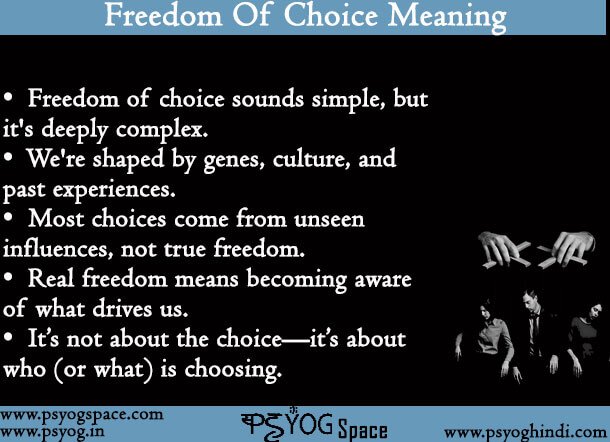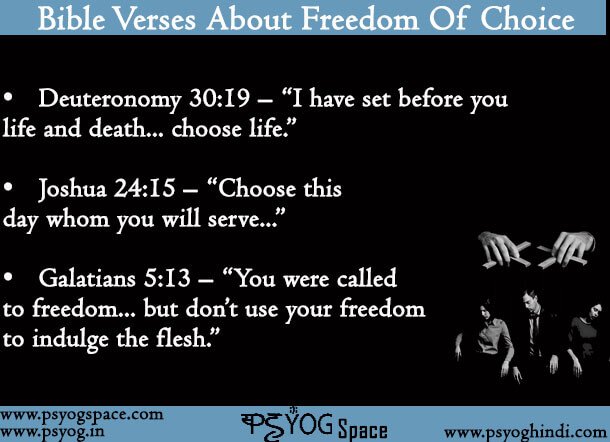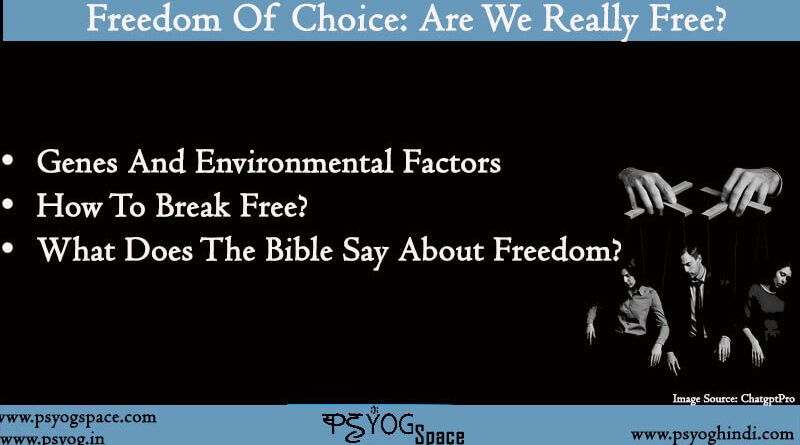Freedom Of Choice: Meaning, Bible Verses And Science
We all throw around the term freedom of choice like it’s a basic truth. Everyone wants to feel like they’re in charge of their life, their decisions. But sometimes, I wonder—are we really free? Like, if we look under the surface, are our choices truly ours? This is something that’s been on my mind. So let’s talk about what freedom of choice meaning actually is, what science says about how we function, and also look at some Bible verses about freedom of choice that go pretty deep.
Freedom Of Choice Meaning
Alright, so here’s the thing. On paper, freedom of choice meaning is easy. You pick one thing or another. You decide what to do. Nobody forces you. Sounds good, right?
But in real life, it’s messy. We humans don’t operate in a vacuum. We’re built from genes we never asked for. Emotions, impulses, reactions—all passed down. Then there’s the world outside—school, family, media, culture. It all shapes how we think and act. It’s like we’re running on data we didn’t choose to download. (Read: How to practice detachment?)
So, when we do something—say, decide to speak up or stay silent—is that really our choice? Or is it something in us reacting automatically?
That’s why freedom of choice meaning isn’t as clear as it sounds. It’s not just about choosing between coffee or tea. It’s about seeing what’s actually influencing the choice. And a lot of the time, it’s not us. It’s the old stuff—memories, beliefs, habits—we didn’t even know were there.

Bible Verses About Freedom Of Choice
Here’s something I think about a lot: if our actions come from what we inherited or what the world shows us, then where’s the actual freedom? Are we just repeating what our ancestors lived through? Is the world scripting us without us even noticing?
It feels like we’re either being pushed by outside stuff or pulled by something inside us that we didn’t create. In a way, the people who came before us—they live through us. The world keeps feeding us signals. And we follow, thinking we’re choosing.
But there’s a different kind of space. A gap. A moment where we don’t react. A silence inside us. And that’s where choice happens. Not the kind of choice that comes from habits or impulses. A clean choice. A conscious one.
There are a few Bible verses about freedom of choice that talk about this in a powerful way:
- Deuteronomy 30:19 – “I have set before you life and death… choose life.” It’s not just saying “pick the right thing.” It’s more like, wake up. Notice what’s in front of you. Then decide.
- Joshua 24:15 – “Choose this day whom you will serve…” That hits hard. Because we’re always serving something—fear, ego, comfort. But we can stop and choose.
- Galatians 5:13 – “You were called to freedom… but don’t use your freedom to indulge the flesh.” That word “flesh” feels like code for the automatic stuff—the programming. The urges. The triggers.
When I read these bible verses, it’s clear they’re not talking about freedom as doing whatever we feel like. They’re talking about something deeper. A kind of awareness. A stepping back. Realizing we have a say—but only when we pause and see what’s going on inside.
And so, bible verses about freedom of choice are really showing us a way out of the loop. They’re not about control. They’re about consciousness.

Conclusion
So yeah—freedom of choice is a tricky thing. We like to think we have it. And maybe, in moments, we do. But most of the time, our actions come from stuff we didn’t choose—our wiring, our environment, our history.
The meaning of real freedom isn’t about doing what we want. It’s about understanding what’s running us. It’s about seeing the pattern, stepping out of it, and responding from somewhere deeper. (Read: Become one with the divine)
Even science backs this up. Our brains are fast, reactive. But we’re more than just brains. There’s something in us that can watch all this happen, and choose from a still place. And the bible verses remind us of that again and again.
So if we ever really want to live with freedom of choice, we have to first slow down. Notice. Disconnect from all the noise—genes, media, culture. Then maybe we get to that quiet space inside where we can actually decide.
FAQs
Freedom of choice meaning having the ability to live a conscious life. Most of us live a compulsive life dictated by our genes and environment. However, when we learn to rise above our genes and environment, we can craft a completely new being. That would give us the freedom to think and act out of choice. So freedom of choice means, living a conscious life.
The Bible verse “You were called to freedom... but don’t use your freedom to indulge the flesh” says a lot about freedom. It urges us to direct our consciousness beyond the bodily level and experience our infinite non-physical nature. Essentially, we are consciousness encaged in a body, and when we go beyond our physical identification, we become one with god.

